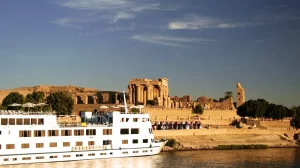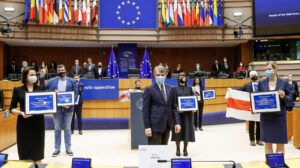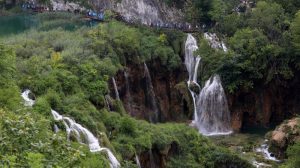After an astonishing 30 years of official golf strategy in Croatia, is it time for someone to be accountable?
This is not an article about golf.
I also hereby state that I have no real opinion or expertise on the merits of golf tourism, and so I offer no opinion on whether or not golf tourism is a good thing or not.
This is an article which uses the official golf strategy in Croatia to highlight the seeming incompetence and unaccountability of those in official positions in charge of charting (and delivering) Croatia’s tourism direction.
While looking into the research for this article, I came across two rather unlikely anniversaries for golf in Croatia.
Did you know that Croatia is celebrating 100 years of golf tourism in 2023? And that its golfing heritage have some claiming that it is home to the oldest golf resort (please note – resort, not golf course) in the world. From the Brijuni National Park official website:
The construction of the golf course on Brijuni was finished in late 1922, and the first tournament was held on 21 March 1923, a mention of which was published in the Pula daily newspaper at the time. The course was claimed to be one of the biggest in Europe. More recent information suggests that the Brijuni course might have been the first golf resort in the world. The course certainly stood out, not only because of its climate and position (Mediterranean destination in “Mitteleuropa”), but also because of its good reputation. Namely, although European championships were never played here, if you were to read the newspapers and journals of the time, you would have got the sense that the course was exceptionally well-known and recognised, both among golf champions and the upper classes. In addition to world-class golfers, the course was frequented by members of the European aristocracy, the most renowned industrialists and artists. Up to 50 tournaments a year would take place on the course of Brijuni, and the trophies for the best players were finally presented at the New Year’s Eve ball and gala dinner.
The second anniversary Croatian golf is celebrating is even more unlikely given the state of play today (unless you have an insider appreciation of the genius of the Kings of Accidental Tourism): Croatia has now had golf tourism as a key component of its official tourism strategy for THIRTY years, since it first appeared in 1993, in the middle of the Homeland War (see the official document in Narodne Novine):
The new construction of content and capacities in tourism should be focused on the construction of quality additions to the existing offer (golf courses, fitness, etc.). Likewise. it is necessary, when investing (in new or existing facilities), to especially stimulate the construction of hotels of only higher and higher categories (four and five stars), and to stimulate them with tax and communal policy.
In the development and investment sphere, at the level of full state support, several so-called “project shock”. These are, above all, projects such as Brijuni, the city of Dubrovnik (a new marina and residential center in the old city center), Tustica near Zadar (a large complex of nautical, golf and exclusive accommodation), the Goli otok project. Opatija, and, possibly, the project of revitalization and bringing the castles of Hrvatski Zagorje into tourist exploitation. In addition, in almost every large tourist company (combination) until yesterday, it is necessary to define and start a basic project that affects any restructuring.
Croatia currently has three 18-hole golf courses, some 30 years later. Brijuni, which opened in 1922, Zapresic near Zagreb (2004), and Golf Adriatic near Savudrija near the Slovenian border, which opened in 2009. The Croatian National Tourist Board tried to have us believe there was an 18-hole golf course called Dolina Kardinala in the middle of Central Zagreb a few years ago, before they removed it when I pointed this out.
They were right to remove it. Dolina Kardinala closed in 2012, and this is how it looked from a drone tour a few years ago.
So in 2013, on the 20th anniversary of Croatia’s official golf tourism strategy which had yielded just two courses in that time, in addition to the one which opened 90 years previously, the 7-years tourism strategic plan was presented. One could argue that 2 courses in 20 years was not exactly a roaring success, but it did not seem to deter the Kings of Accidental Tourism, who once more put golf at the heart of their long-term strategy.
Not only a healthy interest in golf, but no less than 30 golf courses were to be constructed over the next 7 years, by 2020. Seriously impressive stuff! The strategy document (the link used to work for me, now I get a message of Forbidden 403…):
The 2020 tourism development strategy foresees the construction of 30 new high-quality golf courses, roughly at the following locations: 14 in the northern Adriatic, 8 in the southern Adriatic, and 8 in continental Croatia.
By 2020, the end of the 7-year plan, not a single course had been started. Nobody seemed to mind or make a comment, the 7-year plan had come to an end.
Indeed, such is the relaxed pace of life in the Kingdom of Accidental Tourism that for the next two years, there wasn’t an official strategy document at all, as the next 7-year plan was being worked on. I think I am correct in saying it still has not been officially released some three years later.
So Croatian tourism has been rudderless without an official 7-year plan for almost three years. Has anyone even noticed?
Back to the golf. The plans looked very pretty indeed.
The difference between Croatia and tiny Slovenia next door is that the Slovenian golf courses were actually real – here is a guide to the 13 Slovenian golf courses compiled by the Total Slovenia News team a few years ago.
Having marvelled at the genius of the Kingdom’s methods over the years, one thing I have learned is that if the Kings are doing nothing, they sure know how to look busy and tell everyone how busy they are, as we explored a few years ago in No Courses Started in 10 Years, But THREE Croatian Golf Tourism Conferences in 2019.
That sure is busy.
The other thing to do to look busy if nothing is happening is to order an expensive report to show how busy you are. And so the 2017 Golf Action Plan was born.
In the redacted edition of the report, there is mention of two quite special projects – Porto Mariccio in Istria, and Srdj above Dubrovnik. The latter is currently the subject of a US$500 million lawsuit against the Republic of Croatia, from memory under arbitration in Washington in a suit filed by the Israeli investor, and Porto Mariccio is my favourite Croatian golfing story, for it involves one of the greatest names in golf, the late Jack Niklaus. The Golden Bear arrived with great fanfare in 2016 and was met at the airport by the then Prime Minister Ivo Sanadar (before he went to prison). Nicklaus announced a 200 million euro golf resort called Porto Mariccio in Istria. With the Prime Minister’s very public backing, that had to be a cert, surely?
I contacted the Jack Nicklaus Course Design company in 2018, some 12 years later, while researching Whatever Happened to Jack Nicklaus’ Croatian Golf Course, Approved by PM Sanader? asking about their involvement, to get this response:
Unfortunately we have not had any communication with the Porto Mariccio project in a number of years and are unable to provide any update for you.
So here we are in 2023, celebrating 100 years of golf tourism in Croatia, and analysing 30 years of official golf tourism strategy. So where are we? Director of the Croatian National Tourist Board Kristjan Stanicic took time out from issuing SLAPP lawsuits against fat bloggers and gave a quite extraordinary interview to Novi List recently. You can read my take on his interview in Croatia National Tourist Board Finally Adopts Some of My Ideas. On golf, he had this to say:
One of those contents that we may already be a little bored with, but it is certainly golf. In no way to break the deadlock, we are aware that, for example, the south of Portugal and Spain are working on golf during the winter season. Climatically, we are very similar.
We are similar, but with the difference that there are very mild winters, which means that you can play golf all year round. We can use it in some southern destinations, islands, even Istria. But nothing happens overnight. There is a lot of talk about golf, it has been worked on for many years.
The esteemed director might be a little bored with golf, but I think the taxpayer would rather see some results, or at least a focus on some other niche that will have some results.
And perhaps a little accountability for the non-delivery of 30 out of the 30 golf courses to be delievered by 2020. Indeed, what are the results of these 30 years of official golf tourism strategy?
Two golf courses and a lawsuit for half a billion dollars against. Good job!
But the final word perhaps should go to the official Croatian National Tourist Board website, which is celebrating 100 years of golf tourism. The 18-hole course from central Zagreb has gone, as have the other courses in Croatia. Here is the relevant information about 100 years of golf tourism and 30 years of official golf tourism strategy in the Kingdom of Accidental Tourism:
Your greatest hits
Despite only having a few courses with 18 holes at the moment, besides the one in Brijuni National Park and some private courses, Croatia aims to become a significant golf destination. Just relax during a game walking through fields surrounded by its idyllic countryside and enjoy its gentle climate to find out why.
Soon you’ll discover there is much more than meets the eye, they say that most company decisions are made on golf fields but the only decisions you will have to make are which vineyards to visit, where to go shopping, will you go sailing… or just keep playing one more hole!
As the Croatian National Tourist Board was keen to point out in their SLAPP lawsuits against me, I am not a tourism expert (nor did I claim to be). I don’t know a lot about golf either, but one thing I do know is that they are called ‘golf courses’ not ‘golf fields’. Perhaps we can organise another golf conference to discuss.































